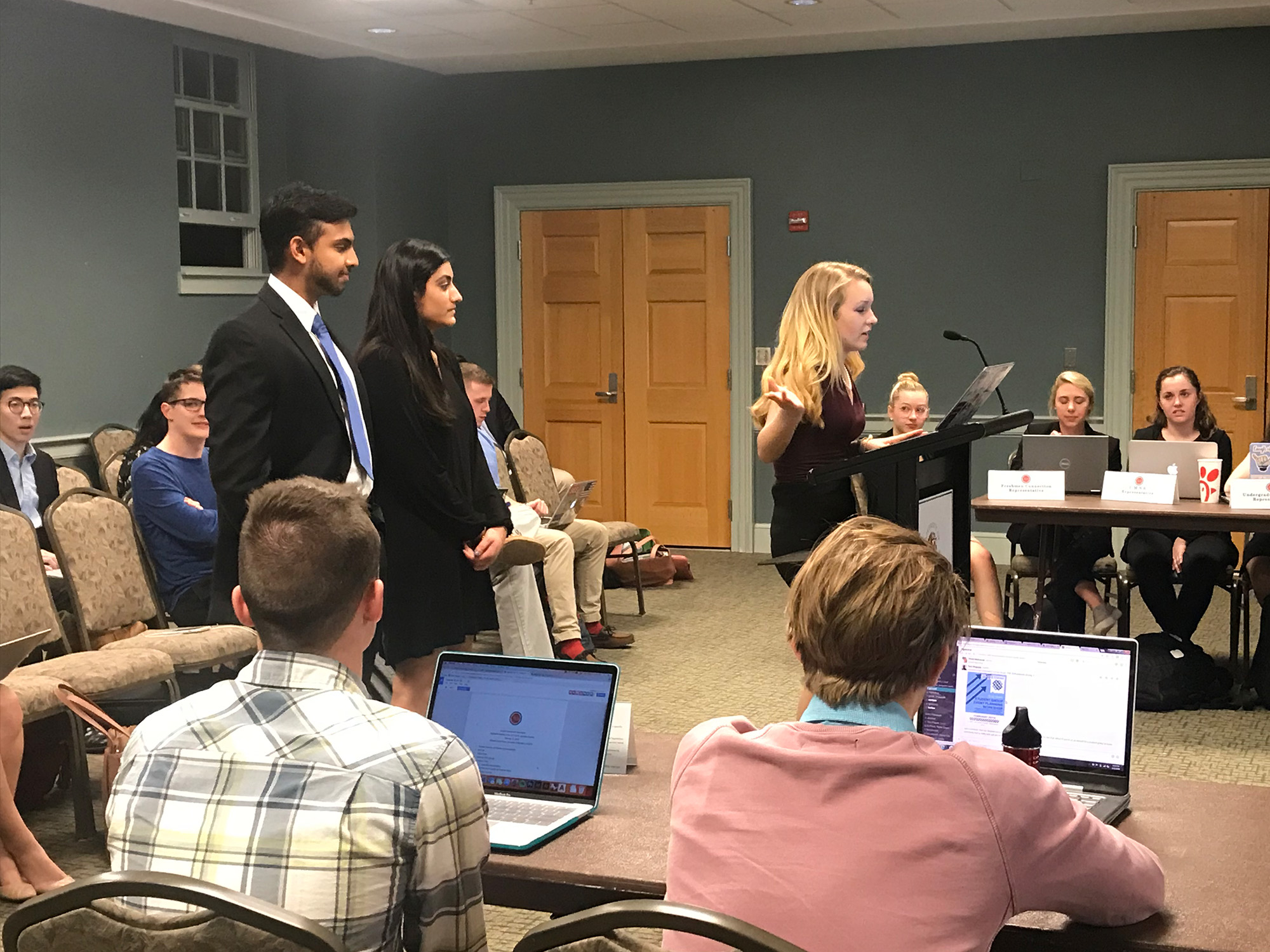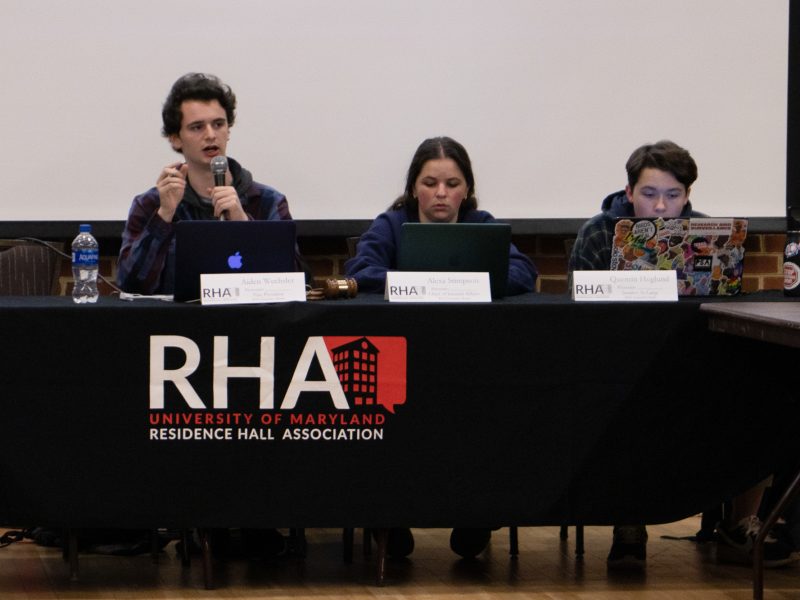The University of Maryland’s SGA passed legislation to fund student groups, continue a student leadership grant fund and back several state initiatives at its Feb. 21 meeting.
The Student Government Association fielded requests for more than $399,000 in student group funding for March to June. Alia Abdelkader, a senior operations management and information systems major and the vice president of financial affairs, said the SGA would have approved about $222,000 if they had the funds to do so.
The SGA ended up awarding about $160,000 after cutting some funding from groups that would have been allocated more than $2,000.
[Read more: UMD SGA wants to raise $5,000 to help student leaders pay for college through grants]
The funding plan was approved by a vote of 26-1, with eight abstentions from new SGA members who had not yet received training or approval to vote on financial matters, and one from the speaker of the legislature.
Debate on the plan had hit a snag over funding for one student group.
This university’s Collegiate FBLA chapter requested money for one student’s transportation from out of state to attend a summer conference. The funding was denied based on a guideline that would deny all transportation that started out of state. But this reason for denial had not yet been approved by the full SGA.
The funding may have been denied anyway on the grounds that it wasn’t the “best use” of student funds, Abdelkader said, but the committee wanted to use a more concrete reason.
[Read more: SGA confirms new members and announces new voting platform]
Michael Trim, a junior economics major and the SGA’s student groups public defender, introduced emergency legislation to provide the funding that the financial committee denied this group, saying it was “the right thing to do,” since the FBLA could not have anticipated to face the guideline.
The legislation passed 25-2, with the same nine abstentions as the earlier bill. This doesn’t guarantee that the student group will be allowed to use the money for its intended purpose.
The SGA also voted unanimously to support another year of its Student Leadership Grant. The grant raised more than $5,300 last year, about $300 above the initial goal, to provide funds for in-need leaders on campus.
“We really liked the overall concept of the Student Leadership Grant and think it’s really important,” said Nisha Desai, the SGA’s communications director and a senior English major. “We only distributed it once, and it was to one student … We really like the concept of helping student leaders in a tangible way, but we’re just trying to try out different configurations of the SLG and see what works the best — what’s the most sustainable in the long run.”
In addition, the association voted to support a letter that they plan to send to Amazon, requesting its serious consideration of Montgomery County as the location for its second headquarters.
The company is also considering two other sites in the Washington, D.C., area for its second headquarters, but Chris Keosian, a senior government and politics major and the director of city affairs, said the tax benefits would be better for Maryland if the company chose to establish itself in Montgomery County. The measure passed 29-4 with two abstentions.
The SGA voted unanimously to support state legislation that would encourage more renewable energy efforts and jobs development in Maryland. The SGA plans to lobby for the parallel bills in the House and Senate, entitled the Renewable Energy and Job Development and the Clean Energy Jobs Act, respectively.
“I’m just going to try and figure out what the offices who are sponsoring the bill really need from us. Chances are, that looks like a letter of support,” said Mihir Khetarpal, the governmental affairs director and a senior economics and government and politics major.
The SGA also appointed two new members in Wednesday’s meeting — Sohil Paravantavida, a junior physiology and neurobiology major as the off-campus residential representative, and Raiha Singh, a junior English major as the Greek residential representative.



